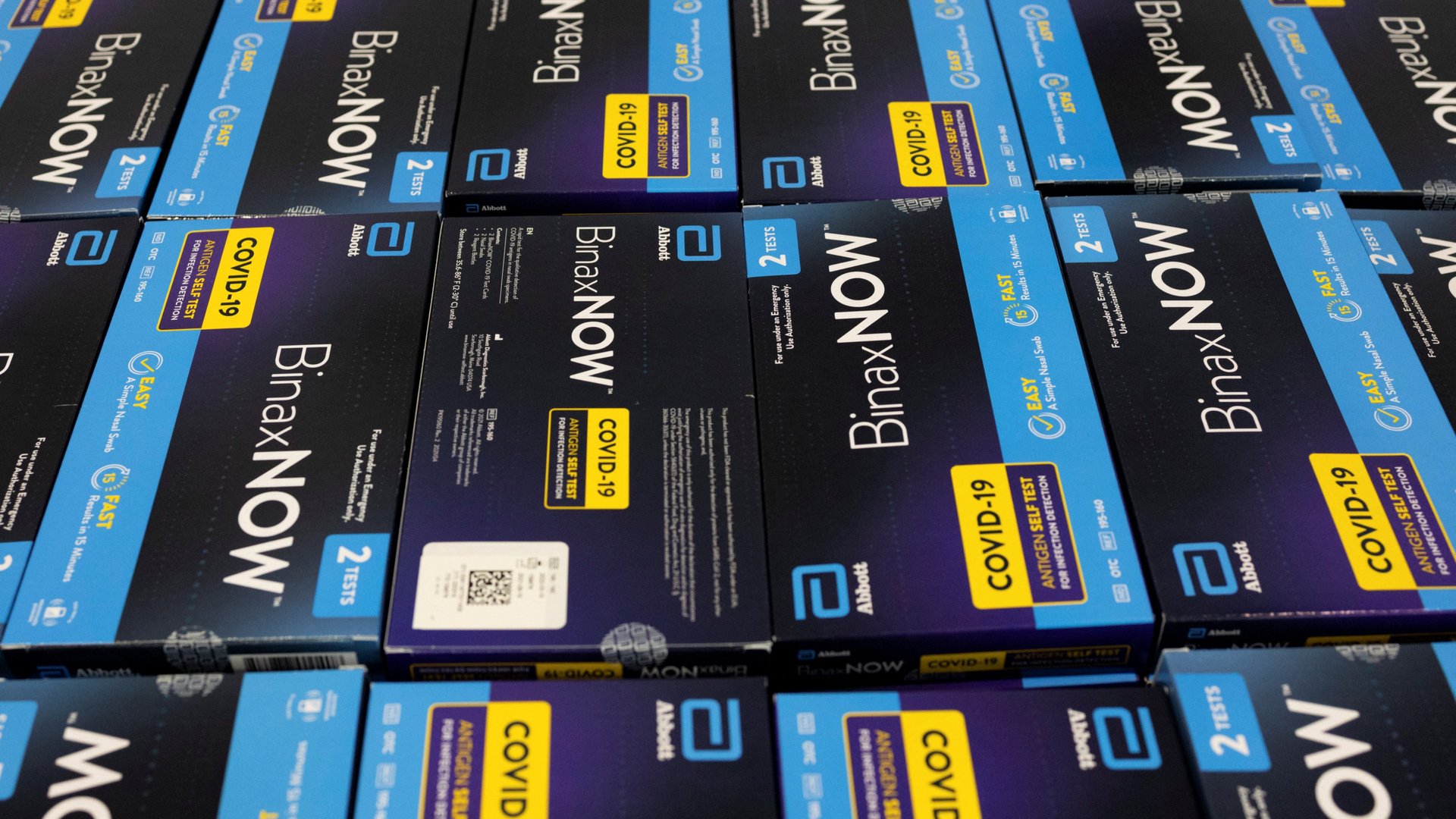There is a fast and easy way to get more rapid tests, if the FDA wants to
After openly mocking the idea, the White House now has a plan to send free at-home covid-19 rapid antigen tests. President Joe Biden announced in a press conference on Dec. 21 that 500 million tests will be sent out, starting in January, to anyone in the US who requests them via a website.


After openly mocking the idea, the White House now has a plan to send free at-home covid-19 rapid antigen tests. President Joe Biden announced in a press conference on Dec. 21 that 500 million tests will be sent out, starting in January, to anyone in the US who requests them via a website.
It is too little and too late. Omicron is spreading way too fast, test shortages are paralyzing cities, and 500 million tests in a nation of 330 million means little more than one per person—a far cry from what would be needed to make testing part of daily life.
Only a few manufacturers are authorized by the US Food and Drug Administration (FDA) to distribute their tests, and asking them to ramp up production and make hundreds of millions of tests takes time.
There is an alternative: Allow the manufacturers of tests being used in other countries ship their tests to the US.
Why rapid test clearance takes so long
The main reason rapid tests are still scarce in the US is that not enough of them are being manufactured and distributed. Between late 2020 and mid-2021, six tests—including made by Abbott and Quidel—received authorization. In recent months a few more have been cleared, but still, only 13 manufacturers are currently allowed to sell their tests in the US.
In order to approve the at-home tests, the FDA compares their performance against that of polymerase chain reaction (PCR) tests, requiring that 80% of the test results are the same between PCR and antigen tests. This can be difficult because the PCR tests can identify the virus in the patient for a much longer period of time, so it can take manufacturers much back and forth to obtain approval.
Many public health experts consider these standards, which the FDA considers important and reasonable, unjustifiably lofty. But the FDA maintains its approval standards are fair and that larger government contracts would suffice for currently approved manufacturers to supply enough tests, if not immediately.
“The FDA’s performance criteria for rapid tests is 80%, in line or lower than other countries. We require only 30 positive specimens, compared with 100 to 200 in other countries,” Michael Felberbaum, a spokesperson for the FDA, wrote to Quartz in an email.
He added too that the EU and other countries also assess the efficacy of rapid antigen tests by comparing them with PCR. Yet the approval process has been faster in the EU, which has approved more than 80 tests across all member states, and 35 have results recognized from one country to the other. Most of these tests aren’t available in the US yet.
But the FDA says the issue is with the developers. The standards for antigen tests have been relaxed to allow test developers to apply the results of their studies made on symptomatic patients to apply to asymptomatic ones too. “The problem is that some of the developers either perform poor studies or even when performing a good study have poor performance even under this very relaxed standard for antigen tests,” Felberbaum wrote.
WHO might have ideas
Michael Mina, a public health specialist who has spent the pandemic researching rapid testing prior to joining eMed, a low-cost rapid test developer, shared a suggestion on Twitter to increase the availability of tests.
Pretty much all the manufacturers currently distributing in other rich countries have been waiting for authorization to send their products to the US. The tests are ready to go, and all they need is FDA approval.
One way to speed it up is to trust that the tests which have had ample success in other countries will succeed in the US, too.
World Health Organization’s researchers have identified rapid tests that satisfy quality requirements and have been top-performers in many nations, and there is data from the EU, UK, or other countries available to assess the quality of a rapid test, without waiting for it to clear the specific requirements set by the FDA.
Update: The story has been updated after the FDA returned Quartz’s request for information.